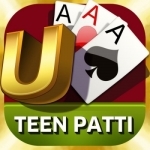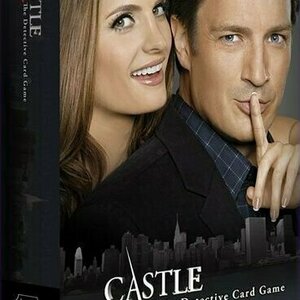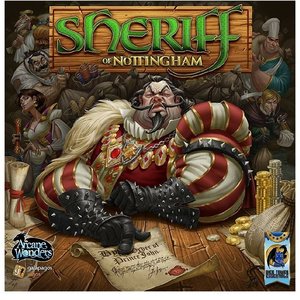Search

Mr Green Mobile Casino
Games and Entertainment
App
Voted ‘Online Gaming Operator of the Year’, Mr Green’s casino App is a must-download if you...
Brian Eno recommended Early Works by Steve Reich in Music (curated)

Ultimate Teen Patti — UTP
Games
App
Teen Patti is the most thrilling card game and Ultimate Teen Patti is the number one Teen Patti app...

Stratego® Single Player
Games and Entertainment
App
Play the best Strategy game ever! Stratego® Official Single Player from Jumbo is all about good...
Purple Phoenix Games (2266 KP) rated Castle: The Detective Card Game in Tabletop Games
Jul 17, 2021
Let’s talk about TV for a second.What would be your all-time favorite TV show? For me, that answer is Castle. I had never heard of it until college, when it was already in its 5th season, but I instantly loved it. I may or may not have gone out and bought all of the seasons to binge watch, and now own all 8 seasons of the show. If you ask me, the series ended too soon, but that’s a conversation for another forum. Anyway, where was I? Oh yeah, games. One wonderful Christmas morning, I opened up a present under the tree and found myself face to face with a Castle card game! I didn’t even know that one existed, but I was so eager to play! Does this game based around my favorite TV show actually play well, or does the attempt to turn this show into a game fall flat?
In Castle: The Detective Card Game (referred to as just Castle for the rest of this review) is a murder-mystery card game in which players assume the role of a character from the show, and work to gather evidence and conduct investigations in order to solve the murder at hand! To set up a game, give every player a Character card that represents one of the main characters from the show. Each Character card has a unique Special Ability to be used during play. Shuffle the Suspect cards, and randomly draw five to be placed face-up in the middle of the table. Select one Guilty token and four Not Guilty tokens – shuffle them together face-down and then place one token on each of the Suspect cards. Shuffle the deck of Investigation cards, deal 3 to each player, place the remaining cards into a Draw deck, and the game is ready to begin!
Moving in clockwise order, players will take turns performing one of the following actions: Draw a card, Discard one card to draw two cards, Play a Special Text card, Use your Special Ability, or Confront a Suspect. The first two actions regarding drawing cards are pretty self-explanatory. Throughout the game, you might draw into your hand an Investigation card with Special Text. You may play a Special Text card, and perform the specified action on your turn. Each Character has a Special Ability that can be used once per game, so plan wisely and use it appropriately! The last action, Confront a Suspect, is what the entire game is leading to. In order to Confront a Suspect, you must have the three Investigation cards listed on the bottom of the Suspect card in hand. When performing this action, you will reveal the three requisite Investigation cards, and then you flip the token on that Suspect card. If the token reads Guilty, then you have won the game! If the token reads Not Guilty, perform the action listed on the token, remove that Suspect and token from the game, discard your used Investigation cards, and play continue with a narrowed Suspect pool! The goal is to be the first player to find the Guilty party before the Draw deck runs out of cards.
Pretty straight-forward, right? I think so, and that’s one of the things I really like about this game. The gameplay is fast and simple, and makes for a quick little set collection game. Another neat element of this game is that although it is based around the Castle TV show, you do not need to have watched any of the show to play. Anyone can play and not feel like they are missing any vital information if they haven’t seen the show, and that makes it accessible to all players, not just fans of the show.
Even though I love the show, I have to admit that the gameplay, although fast and simple, is heavily dependent on the luck of the draw. Throughout the game, you are working to collect sets of the necessary Investigation cards for individual suspects, but the only way in which cards are distributed is through drawing them from the deck. There isn’t an offering that you ‘pay’ certain resources for coveted cards, there’s no real way to know in advance what card you are going to draw, etc. It really depends on how the deck was shuffled whether you will be successful or not. There are no real opportunities to strategize, and that keeps the overall gameplay kind of stagnant. Yes, there are Special Text cards and each Character has a unique ability, but deciding when to use them is kind of a shot in the dark due to the dependence on luck.
Let’s talk components for a minute. All of the Investigation and Character cards use photos or stills from the actual TV show. Again, you need not have watched it to play, but the use of the stills makes the game more immersive and nostalgic for those that have seen it. I love looking at the cards and trying to remember from which episode each still is, and if I remember who the killer was in that specific scenario. It’s just a fun little thing. The cards are all of good sturdy quality and will hold up decently in the long run. The Guilty/Not Guilty tokens in this game are some thick and heavy poker chips and they are AWESOME. They are so high quality, I just love to manipulate them, and they add some cool ‘bling’ to the game.
All in all, is Castle a great card game? No, not necessarily. It is a fun little murder mystery game, but not one that requires and real strategy or brain power to successfully play. Do I like it though? Absolutely, because it is based on my favorite show! If you’re looking for a nice filler game, or a game that doesn’t require too much focus, give Castle: The Detective Card Game a shot. That being said, I feel like only fans of the show will be trying this game, but I guess you can prove me wrong! Purple Phoenix Games give this a mischievous 6 / 12.
In Castle: The Detective Card Game (referred to as just Castle for the rest of this review) is a murder-mystery card game in which players assume the role of a character from the show, and work to gather evidence and conduct investigations in order to solve the murder at hand! To set up a game, give every player a Character card that represents one of the main characters from the show. Each Character card has a unique Special Ability to be used during play. Shuffle the Suspect cards, and randomly draw five to be placed face-up in the middle of the table. Select one Guilty token and four Not Guilty tokens – shuffle them together face-down and then place one token on each of the Suspect cards. Shuffle the deck of Investigation cards, deal 3 to each player, place the remaining cards into a Draw deck, and the game is ready to begin!
Moving in clockwise order, players will take turns performing one of the following actions: Draw a card, Discard one card to draw two cards, Play a Special Text card, Use your Special Ability, or Confront a Suspect. The first two actions regarding drawing cards are pretty self-explanatory. Throughout the game, you might draw into your hand an Investigation card with Special Text. You may play a Special Text card, and perform the specified action on your turn. Each Character has a Special Ability that can be used once per game, so plan wisely and use it appropriately! The last action, Confront a Suspect, is what the entire game is leading to. In order to Confront a Suspect, you must have the three Investigation cards listed on the bottom of the Suspect card in hand. When performing this action, you will reveal the three requisite Investigation cards, and then you flip the token on that Suspect card. If the token reads Guilty, then you have won the game! If the token reads Not Guilty, perform the action listed on the token, remove that Suspect and token from the game, discard your used Investigation cards, and play continue with a narrowed Suspect pool! The goal is to be the first player to find the Guilty party before the Draw deck runs out of cards.
Pretty straight-forward, right? I think so, and that’s one of the things I really like about this game. The gameplay is fast and simple, and makes for a quick little set collection game. Another neat element of this game is that although it is based around the Castle TV show, you do not need to have watched any of the show to play. Anyone can play and not feel like they are missing any vital information if they haven’t seen the show, and that makes it accessible to all players, not just fans of the show.
Even though I love the show, I have to admit that the gameplay, although fast and simple, is heavily dependent on the luck of the draw. Throughout the game, you are working to collect sets of the necessary Investigation cards for individual suspects, but the only way in which cards are distributed is through drawing them from the deck. There isn’t an offering that you ‘pay’ certain resources for coveted cards, there’s no real way to know in advance what card you are going to draw, etc. It really depends on how the deck was shuffled whether you will be successful or not. There are no real opportunities to strategize, and that keeps the overall gameplay kind of stagnant. Yes, there are Special Text cards and each Character has a unique ability, but deciding when to use them is kind of a shot in the dark due to the dependence on luck.
Let’s talk components for a minute. All of the Investigation and Character cards use photos or stills from the actual TV show. Again, you need not have watched it to play, but the use of the stills makes the game more immersive and nostalgic for those that have seen it. I love looking at the cards and trying to remember from which episode each still is, and if I remember who the killer was in that specific scenario. It’s just a fun little thing. The cards are all of good sturdy quality and will hold up decently in the long run. The Guilty/Not Guilty tokens in this game are some thick and heavy poker chips and they are AWESOME. They are so high quality, I just love to manipulate them, and they add some cool ‘bling’ to the game.
All in all, is Castle a great card game? No, not necessarily. It is a fun little murder mystery game, but not one that requires and real strategy or brain power to successfully play. Do I like it though? Absolutely, because it is based on my favorite show! If you’re looking for a nice filler game, or a game that doesn’t require too much focus, give Castle: The Detective Card Game a shot. That being said, I feel like only fans of the show will be trying this game, but I guess you can prove me wrong! Purple Phoenix Games give this a mischievous 6 / 12.
Purple Phoenix Games (2266 KP) rated Sheriff of Nottingham in Tabletop Games
Nov 16, 2021
One neat thing about the board gaming hobby is how many new games are designed/created daily. So much innovation, creativity, and hype surrounds new releases and helps keep us gamers hooked! That being said, what happens to older games as time goes on? Can they still hold their own over the years? Do they still feel new and novel to first-time players who are getting to them late? The latter describes me with Sheriff of Nottingham. I only received it for Christmas two years ago, and it has sadly been sitting on my Shelf of Shame until recently. So now that I’ve finally gotten it to the table, how does it hold up? Keep reading to find out!
Disclaimer: I have the first edition of this game, so the pictures below do not reflect the art/component changes brought in the recently released second edition. -L
Sheriff of Nottingham is a party game of bluffing, negotiation, and set collection in which players are trying to earn the most money by bringing their goods (Legal or Contraband!) to market. However, before those goods can get to your merchant stand, they must be cleared to pass by the Sheriff of Nottingham. Are you honest in your declarations, or are you trying to sneak something past the town authority? Bluff, bribe, or negotiate your way to victory and collect the most gold!
To setup for a game of Sheriff of Nottingham, each player receives a merchant stand board and bag in their chosen color, 20 starting gold, and 6 Goods cards. The remaining Goods cards are placed in a draw pile, with 2 adjacent discard piles. Turn over 5 cards to each discard pile, select a starting Sheriff, and the game is ready to begin! Sheriff of Nottingham is played over a series of rounds, and each round is broken down into 5 phases: Market, Load Merchant Bag, Declaration, Inspection, and End of Round. Important note – the player acting as Sheriff for the round will only act in the Inspection phase of a round. During the Market phase, players have the opportunity to discard unwanted Goods from their hand in order to draw cards from the draw pile or either discard pile. New cards are drawn one at a time, and you will draw as many cards as you have chosen to discard. The cards you discard will be placed in either discard pile, in whatever order you choose.
The next phase, Load Merchant Bag, is pretty self-explanatory. All merchant players will select up to 5 cards from their hand to place in their merchant bag. Snap it closed, and place it in front of you for the next phase, Declaration. In this phase, players will take turns declaring what good they are bringing to market. You must say exactly how many cards you are bringing, and you may only declare 1 type of Legal good! Even if your bag has multiple types of goods, you must declare only 1 type. Here is where your bluffing skills come into play! Once all players have made their declarations, the game moves to the Inspection phase, and it is now time for the Sheriff to act! In this phase, the Sheriff will get to decide if they wish to inspect any of the merchant bags, and merchants will have the opportunity to negotiate or bribe the Sheriff to not inspect their bag, or to inspect an opponent’s bag instead. If you make a deal with the Sheriff, you must hold up your end of the agreement!
Once the Sheriff has made their decision, they will either inspect bags or allow them to pass. If you are allowed to pass, you will take back your bag, open it, and add all goods to your merchant stand in their corresponding locations. Legal goods are known to all players, but Contraband goods are kept face-down. If the Sheriff chose to inspect your bag, they will open it and reveal the cards inside. If you were in fact telling the truth, and the cards inside are exactly what you declared, you add them to your merchant stand and the Sheriff will pay you a penalty for each Good card in your bag. If you were lying, a few things happen. First, any goods that were truthfully declared will go to your merchant stand as normal. Any goods that you lied about are confiscated by the Sheriff, and placed onto either discard pile. You then will pay the Sheriff a penalty fee for each confiscated good! The final phase, End of Round, has all players draw back up to 6 cards in hand, and the Sheriff title passes to the next player. The game continues in this fashion until all players have been the Sheriff twice (or three times in a 3-player game). Points are counted up – from your goods in your merchant stand, any gold coins you possess, and any bonus points for majority of Legal goods compared to opponents. Once all points have been tallied, the player with the highest score wins!
I know that I have said before that I generally don’t like bluffing games, but I think that Sheriff of Nottingham might be an exception. Yes, in some cases you will have to bluff about the contents of your merchant bag, but the ability to bribe/negotiate with the Sheriff takes some focus off the actual bluffing part. Can you convince the Sheriff to inspect another player’s bag just because you are trying to hinder that player? Or do you try to get the Sheriff to inspect your own bag, because then they will have to pay you a penalty fee for your honesty (this round, at least). It feels like there is more strategic gameplay here than simple bluffing, and I like the opportunity to strategize instead of relying solely on my (admittedly horrendous) poker-face.
Another thing that I really like about Sheriff of Nottingham is that it can technically be categorized as a party game, but it doesn’t feel like a typical party game to me. It takes strategy to play, and doesn’t just rely on crude/adult humor for laughs. This game really engages all players at all times, as you’re constantly watching your opponents, keeping track of what goods they seem to be collecting, and trying to catch them in a lie. The gameplay itself is pretty streamlined and straightforward, and that just helps to make it flow naturally and logically. The playing time is listed as 60 minutes, but it doesn’t feel like a long game to me at all. It’s just a light, fun, and entertaining game for really any type of game night.
Let’s talk components for a minute. Again, I have the first edition of the game, so I cannot speak as to any component changes in the second edition. But overall, the quality of the first edition is pretty nice! The merchant stand boards are nice, thick cardboard, and are colorful and clear. Perhaps my favorite part of the boards is they each have a turn order reference on them. Not that the gameplay is that complicated, but it’s nice to just have that quick guide. The Goods cards are good quality and feel nice in hand. The artwork is mostly pretty simple, but I like that, since the crux of the gameplay is in the player interactions. The cardboard coins are chunky, and the insert doubles as a draw/discard pile organizer – which to me is a lifesaver! Nothing bothers me more than unruly stacks of cards. The merchant bags are nice and mostly functional. My biggest issue with them is that sometimes the snaps are a little hard to open, and it feels like you might tear the bag if you pull on them too hard. To alleviate that, I just don’t have players actually close the snap, instead just folding over the flap, and that works just as well! Great production quality in my opinion.
So if I seem to like this game, why did I only give it a 4 out of 6? The simple answer to that is that I do like the game, but I don’t love it. It’s fun and serves its purpose well, but it’s not a game that I am dying to pull out every game night. It’s one that will stay in my collection for sure, because there are some occasions that are just perfect for it. But it’s not one that will ever make its way to my Top 10. All in all, it holds up well for being an ‘older’ game, but it doesn’t exactly have me jumping up and down to play. That’s why Purple Phoenix Games gives this one an 11 / 18.
Disclaimer: I have the first edition of this game, so the pictures below do not reflect the art/component changes brought in the recently released second edition. -L
Sheriff of Nottingham is a party game of bluffing, negotiation, and set collection in which players are trying to earn the most money by bringing their goods (Legal or Contraband!) to market. However, before those goods can get to your merchant stand, they must be cleared to pass by the Sheriff of Nottingham. Are you honest in your declarations, or are you trying to sneak something past the town authority? Bluff, bribe, or negotiate your way to victory and collect the most gold!
To setup for a game of Sheriff of Nottingham, each player receives a merchant stand board and bag in their chosen color, 20 starting gold, and 6 Goods cards. The remaining Goods cards are placed in a draw pile, with 2 adjacent discard piles. Turn over 5 cards to each discard pile, select a starting Sheriff, and the game is ready to begin! Sheriff of Nottingham is played over a series of rounds, and each round is broken down into 5 phases: Market, Load Merchant Bag, Declaration, Inspection, and End of Round. Important note – the player acting as Sheriff for the round will only act in the Inspection phase of a round. During the Market phase, players have the opportunity to discard unwanted Goods from their hand in order to draw cards from the draw pile or either discard pile. New cards are drawn one at a time, and you will draw as many cards as you have chosen to discard. The cards you discard will be placed in either discard pile, in whatever order you choose.
The next phase, Load Merchant Bag, is pretty self-explanatory. All merchant players will select up to 5 cards from their hand to place in their merchant bag. Snap it closed, and place it in front of you for the next phase, Declaration. In this phase, players will take turns declaring what good they are bringing to market. You must say exactly how many cards you are bringing, and you may only declare 1 type of Legal good! Even if your bag has multiple types of goods, you must declare only 1 type. Here is where your bluffing skills come into play! Once all players have made their declarations, the game moves to the Inspection phase, and it is now time for the Sheriff to act! In this phase, the Sheriff will get to decide if they wish to inspect any of the merchant bags, and merchants will have the opportunity to negotiate or bribe the Sheriff to not inspect their bag, or to inspect an opponent’s bag instead. If you make a deal with the Sheriff, you must hold up your end of the agreement!
Once the Sheriff has made their decision, they will either inspect bags or allow them to pass. If you are allowed to pass, you will take back your bag, open it, and add all goods to your merchant stand in their corresponding locations. Legal goods are known to all players, but Contraband goods are kept face-down. If the Sheriff chose to inspect your bag, they will open it and reveal the cards inside. If you were in fact telling the truth, and the cards inside are exactly what you declared, you add them to your merchant stand and the Sheriff will pay you a penalty for each Good card in your bag. If you were lying, a few things happen. First, any goods that were truthfully declared will go to your merchant stand as normal. Any goods that you lied about are confiscated by the Sheriff, and placed onto either discard pile. You then will pay the Sheriff a penalty fee for each confiscated good! The final phase, End of Round, has all players draw back up to 6 cards in hand, and the Sheriff title passes to the next player. The game continues in this fashion until all players have been the Sheriff twice (or three times in a 3-player game). Points are counted up – from your goods in your merchant stand, any gold coins you possess, and any bonus points for majority of Legal goods compared to opponents. Once all points have been tallied, the player with the highest score wins!
I know that I have said before that I generally don’t like bluffing games, but I think that Sheriff of Nottingham might be an exception. Yes, in some cases you will have to bluff about the contents of your merchant bag, but the ability to bribe/negotiate with the Sheriff takes some focus off the actual bluffing part. Can you convince the Sheriff to inspect another player’s bag just because you are trying to hinder that player? Or do you try to get the Sheriff to inspect your own bag, because then they will have to pay you a penalty fee for your honesty (this round, at least). It feels like there is more strategic gameplay here than simple bluffing, and I like the opportunity to strategize instead of relying solely on my (admittedly horrendous) poker-face.
Another thing that I really like about Sheriff of Nottingham is that it can technically be categorized as a party game, but it doesn’t feel like a typical party game to me. It takes strategy to play, and doesn’t just rely on crude/adult humor for laughs. This game really engages all players at all times, as you’re constantly watching your opponents, keeping track of what goods they seem to be collecting, and trying to catch them in a lie. The gameplay itself is pretty streamlined and straightforward, and that just helps to make it flow naturally and logically. The playing time is listed as 60 minutes, but it doesn’t feel like a long game to me at all. It’s just a light, fun, and entertaining game for really any type of game night.
Let’s talk components for a minute. Again, I have the first edition of the game, so I cannot speak as to any component changes in the second edition. But overall, the quality of the first edition is pretty nice! The merchant stand boards are nice, thick cardboard, and are colorful and clear. Perhaps my favorite part of the boards is they each have a turn order reference on them. Not that the gameplay is that complicated, but it’s nice to just have that quick guide. The Goods cards are good quality and feel nice in hand. The artwork is mostly pretty simple, but I like that, since the crux of the gameplay is in the player interactions. The cardboard coins are chunky, and the insert doubles as a draw/discard pile organizer – which to me is a lifesaver! Nothing bothers me more than unruly stacks of cards. The merchant bags are nice and mostly functional. My biggest issue with them is that sometimes the snaps are a little hard to open, and it feels like you might tear the bag if you pull on them too hard. To alleviate that, I just don’t have players actually close the snap, instead just folding over the flap, and that works just as well! Great production quality in my opinion.
So if I seem to like this game, why did I only give it a 4 out of 6? The simple answer to that is that I do like the game, but I don’t love it. It’s fun and serves its purpose well, but it’s not a game that I am dying to pull out every game night. It’s one that will stay in my collection for sure, because there are some occasions that are just perfect for it. But it’s not one that will ever make its way to my Top 10. All in all, it holds up well for being an ‘older’ game, but it doesn’t exactly have me jumping up and down to play. That’s why Purple Phoenix Games gives this one an 11 / 18.


